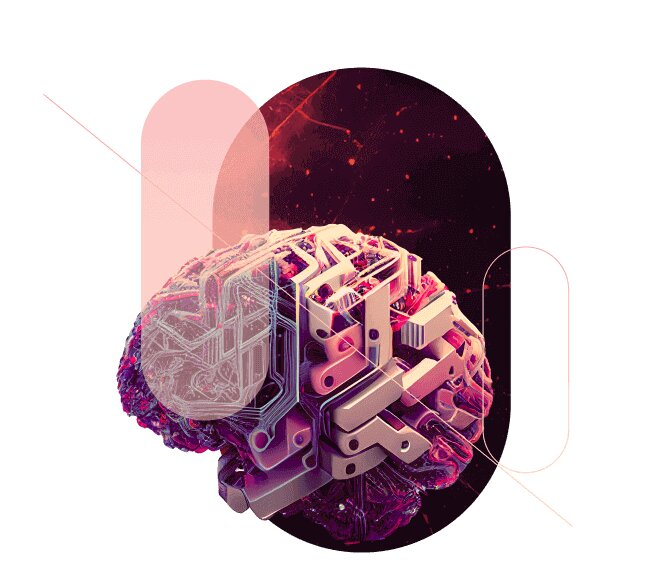Can Artificial Intelligence Be A Boon In Mental Health?
Artificial Intelligence is all over the place, be it education, retail, healthcare, and now even mental health. Yes, that’s true! AI for mental health is about to be the next big thing in the world of technology. In fact, most therapists and mental health experts are already using Artificial Intelligence to detect symptoms of anxiety and improve their diagnosis and treatments. On the flip side, many individuals with mental health problems are already speaking out to an AI chatbot, instead of a human therapist.
Significance of Artificial Intelligence in Mental Health
All this has significantly led to advancements in the AI development company working on mental healthcare to improve mental health and combat severe health crises.
Nearly 50 million Americans suffer from some sort of mental illness. While youth depression rates have risen from 12.9% to 25.2% before the pandemic to 2021. 1 in 5 youngsters will or already have some kind of mental health problem.
This mental health data is alarming. And primarily this is because of the social stigma attached to mental health issues, the high cost of personal therapists, the lack of awareness, and insufficient mental health experts.
Thus Artificial Intelligence in mental health can expand and bring in new possibilities not just in diagnosis but also in offering the best treatments. In this article, we are going to discuss AI for mental health, its scope, opportunities and more. So, without any further delay, let’s start with the discussion.
An Overview of Global Mental Health
According to WHO, over 150 million people in the European region were suffering from a mental health condition. And certainly, the pandemic made it worse. Almost 1 in 5 Americans deal with some kind of menthol health condition in their lifetime. Also, suicide is one of the major causes of death in the U.S.A. In fact, it was the second leading cause of death for people between 10-24 years of age in 2020. While 84% of psychologists report an increase in the demand for anxiety treatments.
Undoubtedly, depression, anxiety, and other mental health problems have risen these days. However, there are multiple factors that have contributed to this, COVID-19 being the major one. Social status and demand for modern society are also one of the reasons. While many experts also believe that since more people are getting to know about mental illness diagnosis and treatment is also on the rise.
However, still, in most cases, individuals depend upon traditional mental health treatments. Even when most places do not have adequate mental health treatment and enough professionals to handle mental health issues.
Indeed Artificial Intelligence technology has the potential to improve the diagnosis and treatment of mental health conditions. The technology can provide deeper insights to the patients and also help the professionals with treatments and training.
How Can Artificial Intelligence Help Overcome Mental Health Challenges?
AI for mental health is gaining momentum and certainly has a lot to offer, to not just the individuals but also the mental health professionals. Here is how AI can transform the mental health sector:
Detecting Anxiety Thorough Motion Sensors
Notably, Artificial Intelligence may detect behavioral signs of anxiety with a 90% accuracy rate. Recently a study was carried out on individuals between 20 to 50 years of age, wherein motion sensors were used to detect any behavioral signs of anxiety.
These signs included having tensed muscles, nail-biting, hand tapping, etc. which AI was able to detect with 92% of accuracy.
While this research provides insight into how AI can be used in diagnosis. It was performed on 10 participants which is still a small dataset. However, it has proved to be effective, we cannot deny that.
Keeping Up With Therapy Quality
Over the past years, there has been a rise in the demand for mental treatments and therapies. AI-driven tools that work through Natural Language Processing (NLP) can help in the effective quality control of the therapy session.
Thus mental health clinics can deliver high-quality standards for mental health treatments. This can also be used for training purposes.
Simplifying Diagnosis and Providing Treatment Recommendations
AI can be very useful in providing mental health professionals diagnose mental health problems at an early stage. Besides, Artificial Intelligence can also utilize data and information to study family history, patient records, and behavioral patterns to offer deeper insights and choice of therapist and treatment suggestions.
Keeping track of Patient’s Performance
It is important to keep track of patients’ progress and the improvements they are making with the therapy sessions and treatment. Artificial Intelligence can keep track of this and also provide information on when the treatment plans need to be changed and what changes in treatment plans must be made. It can also tell whether you need another therapist.
Conclusion
Artificial Intelligence in mental health is still in its nascent stage of development. However, already there are AI-powered virtual therapists namely Tess, Ellie, Replika, and more that are here to completely transform the way we see mental health treatment.
In today’s time, mental health is certainly a major concern. AI can certainly offer huge benefits in the mental healthcare sector. Even though it has quite a few challenges to overcome and a long way to go, AI can certainly support the work of human therapists and AI models can certainly be used in conjugation with traditional therapy. So what is your take on AI in mental health? Do you think it can replace the traditional therapists?














